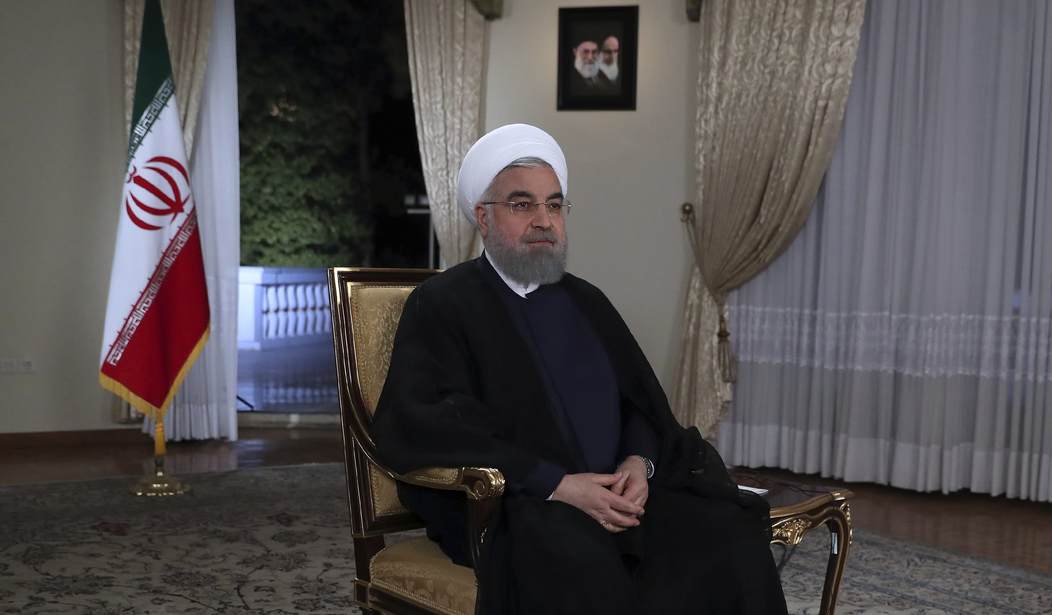WASHINGTON – If the U.S. stays on its present path, Iran will emerge in the coming years as a far more ominous nuclear threat than North Korea, a Heritage Foundation scholar said Wednesday.
“If you like what North Korea is doing today, you’re going to love what Iran is going to be doing a few years down the road,” said James Phillips, a senior research fellow.
The Obama administration, a handful of international partners, Russia and Iran agreed to the Joint Comprehensive Plan of Action in 2015, which dictated that Iran significantly curb nuclear operations in return for the lifting of international economic sanctions. The agreement dealt an estimated $100 billion in sanctions relief and unfrozen assets to Iran.
But international consensus is that Tehran has not upheld its end of the bargain, ramping up its ballistic missile program and expanding subversive forces throughout Iraq, Syria and Yemen. Iran’s list of proxies includes Hezbollah, Hamas and Houthis. The last administration acknowledged that such bad behavior was not meant to be covered by the P5+1 nuclear deal.
In Syria, Iran has cooperated closely with Russia, deploying some 5,000 revolutionary guards. According to Phillips, since the agreement, Tehran has boosted its defense budget by about $300 million for a ballistic missile program and the Quds Force, elite special forces of Iran’s Revolutionary Guard Corps charged with protecting and advancing the Islamic Republic. Phillips said the 2015 deal handed Iran an “economic bonanza.”
“The nuclear deal has not moderated Iran. In fact, it has strengthened and emboldened hardliners within Iran, and Washington must impose clear and increasing costs on Iran, on the regime, in order to dissuade it from continuing on its present path,” he said.
Iran differs from North Korea, he continued, in that Tehran leads a much stronger economy, has more allies around the world, and it has a far more aggressive track record of violent regional intervention.
Jim Hanson, president of the Security Studies Group who served in the U.S. Army Special Forces, said that America stood by for the past eight years watching President Obama empower Tehran. He was “stunned” that the Obama administration treated Iran as a potential peace partner, given that there is no historical basis for such an approach. Iran, he said, has been killing Americans since its revolution in the late 1970s. In the Iraq War, Iran was one of the major producers and distributors of weapons used by al-Qaeda and Shia militias, he said, which killed somewhere between 500 and 1,000 American troops.
“Yet somehow (Obama) decided that they were ones that we should back,” Hanson said. “2016 – (Iran was) the State Department’s leading sponsor of terrorism worldwide. Now, that might not get you much in the Trump administration. In the Obama administration, it got you pallets full of cash flown in the middle of the night.”
Mark Dubowitz, CEO of Foundation for Defense of Democracies, said that Iran’s regime took advantage of the “policy paralysis” of the past eight years.
“We were so afraid of the Iranian shadow,” he said. “We were so afraid that the Iranians would reach a nuclear deal, and then we were so afraid the Iranians would walk away from that nuclear deal that we were unwilling actually to counter Iranian aggression.”
In 10 years, he continued, Iran will have an industrial-sized nuclear weapons program.
“All they have to do is wait until the key restrictions on the program sunset, and they will emerge with a legal, internationally recognized, NPT-compliant, industrial-sized nuclear program,” he said.
He noted that Iran’s economy in 2013 was growing at a negative 6.5 percent GDP rate and was on the verge of collapse. The economy is now growing between 4 percent and 5 percent. Dubowitz recommended that the Trump administration not allow nuclear provisions in the agreement to sunset, comparing the situation to President Reagan’s showdown with the Soviet Union. Six years after Reagan issued National Security Decision Directive 75 in 1983, the Soviet Union collapsed.
“We have a huge project ahead of us, but what Reagan did to the communists, Donald Trump has to do to the mullahs,” he said.
Obama’s chief negotiator Wendy Sherman, who served as undersecretary of State for political affairs from 2011 to 2015, defended the Iran deal in May. Trump in August signed a veto-proof sanctions bill targeting Russia, Iran and North Korea, but complained that Congress had hamstrung his business-dealmaking skills with the “seriously flawed” legislation.









Join the conversation as a VIP Member